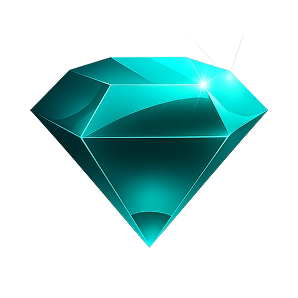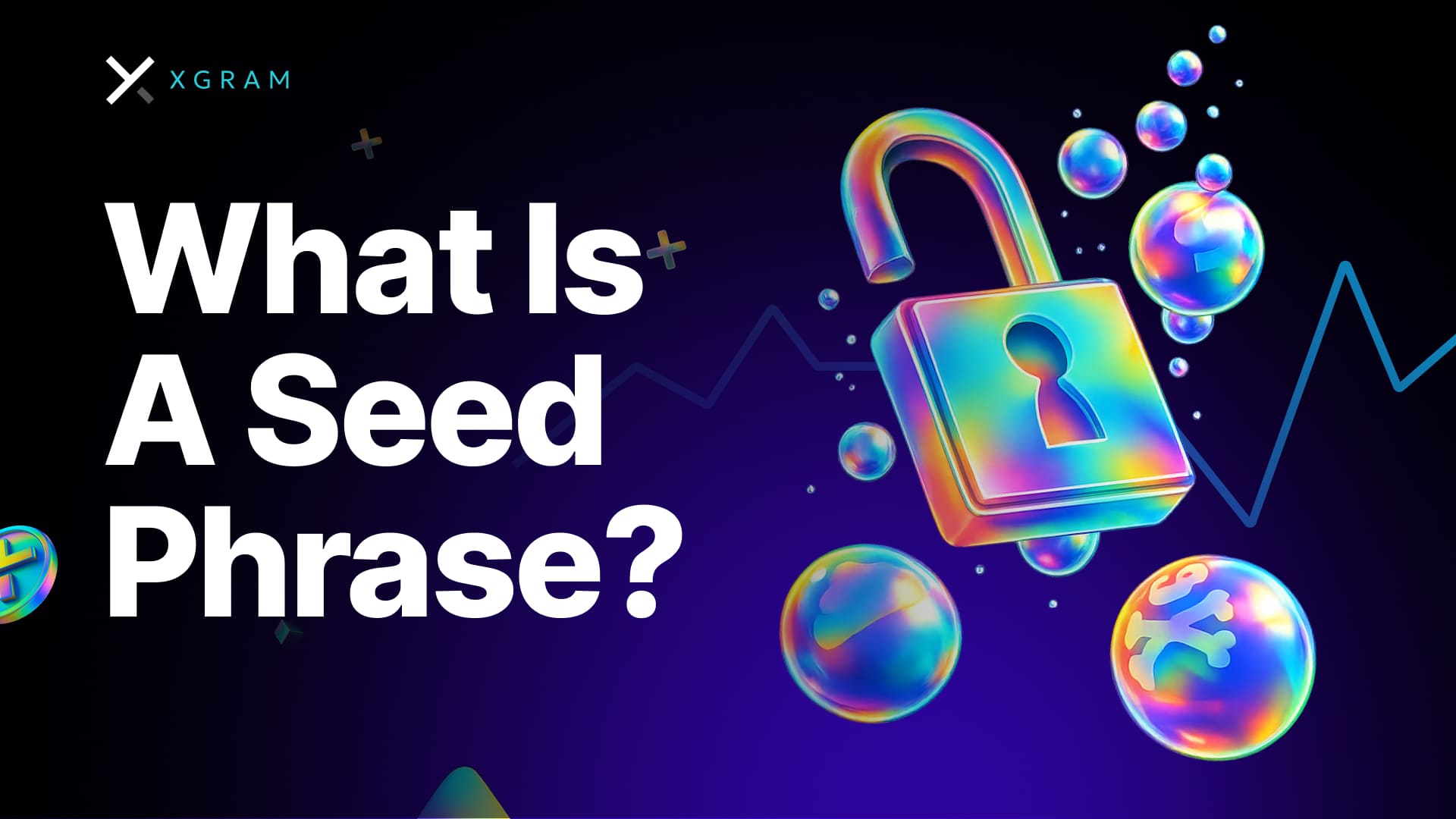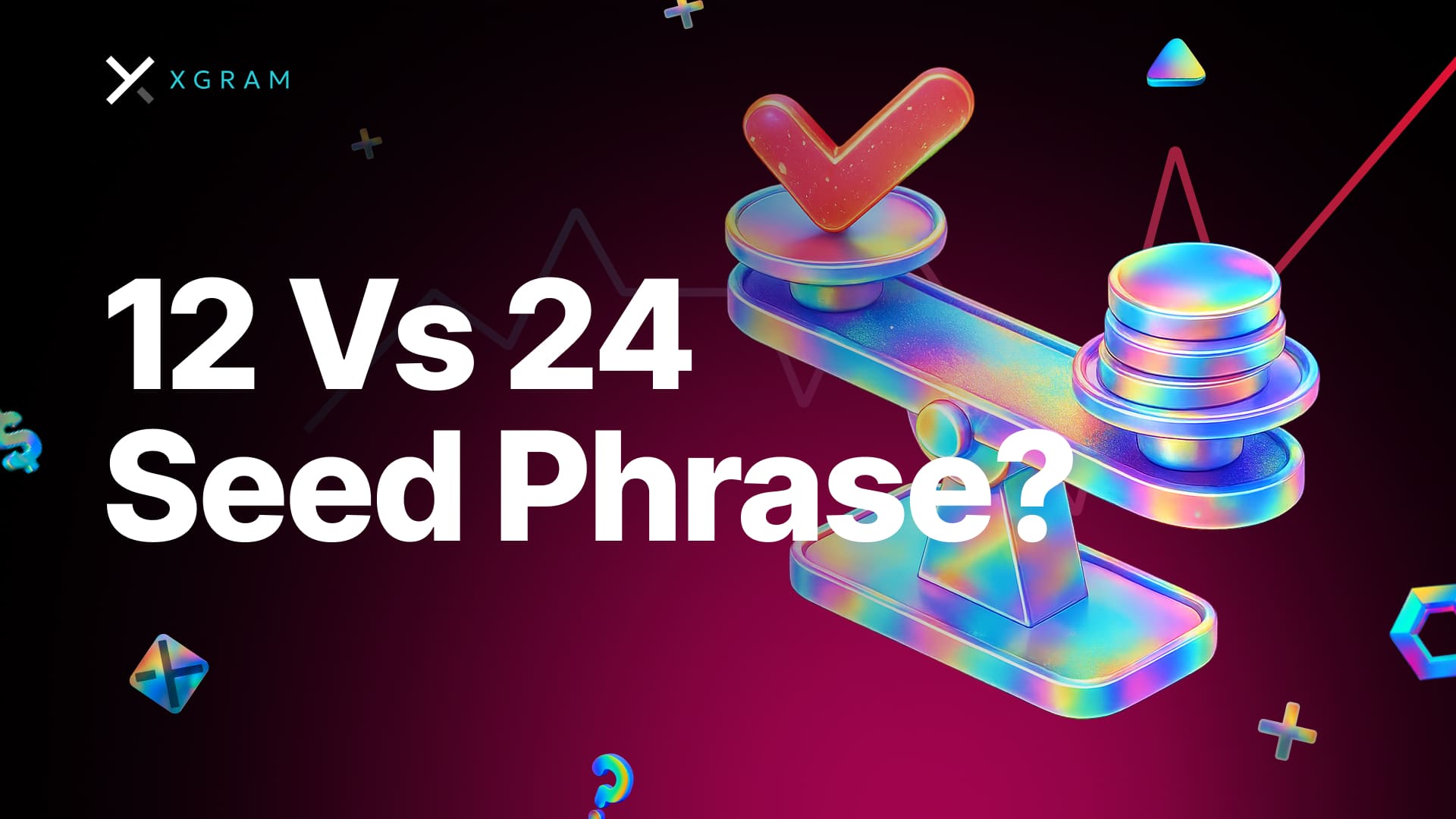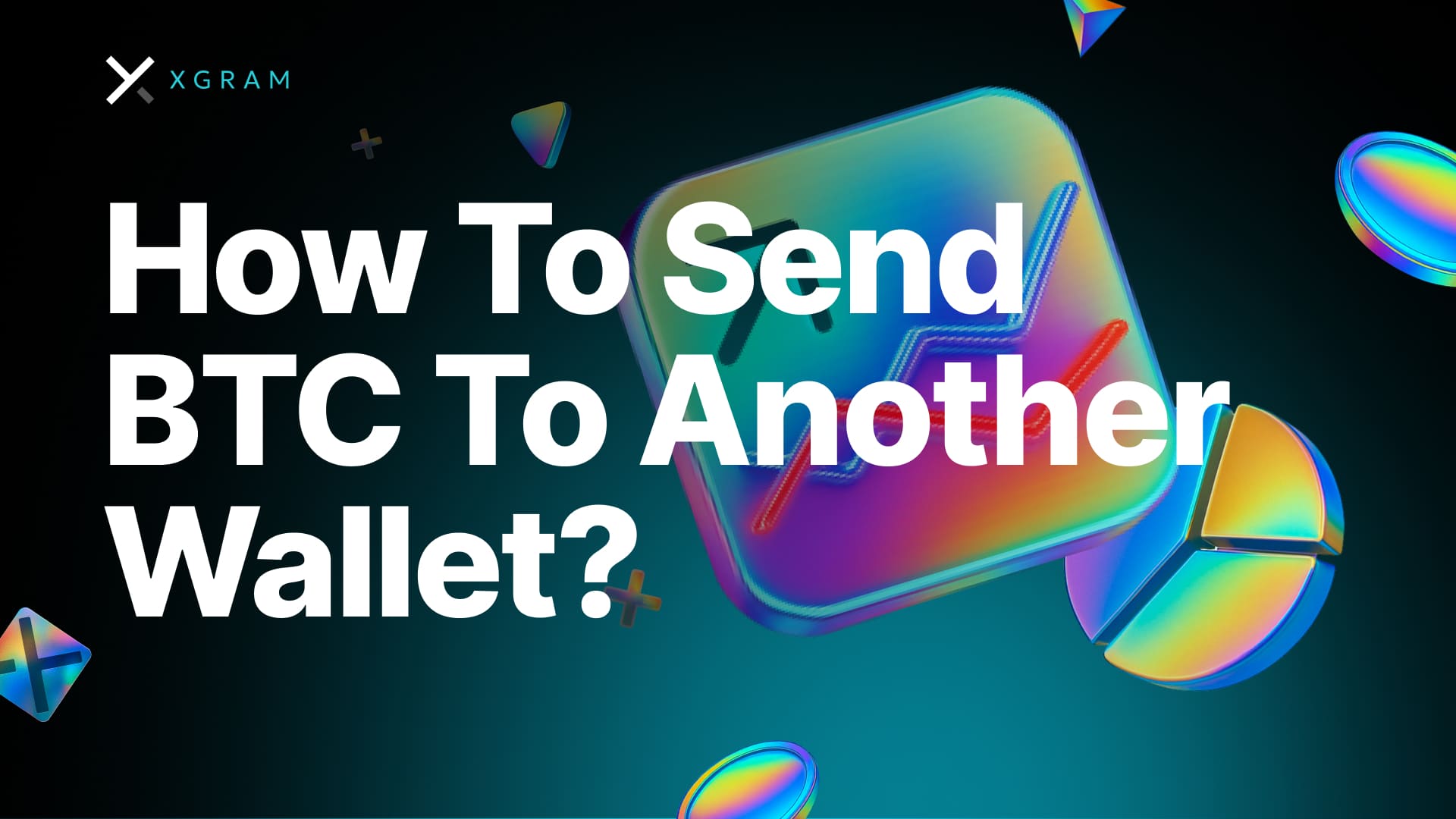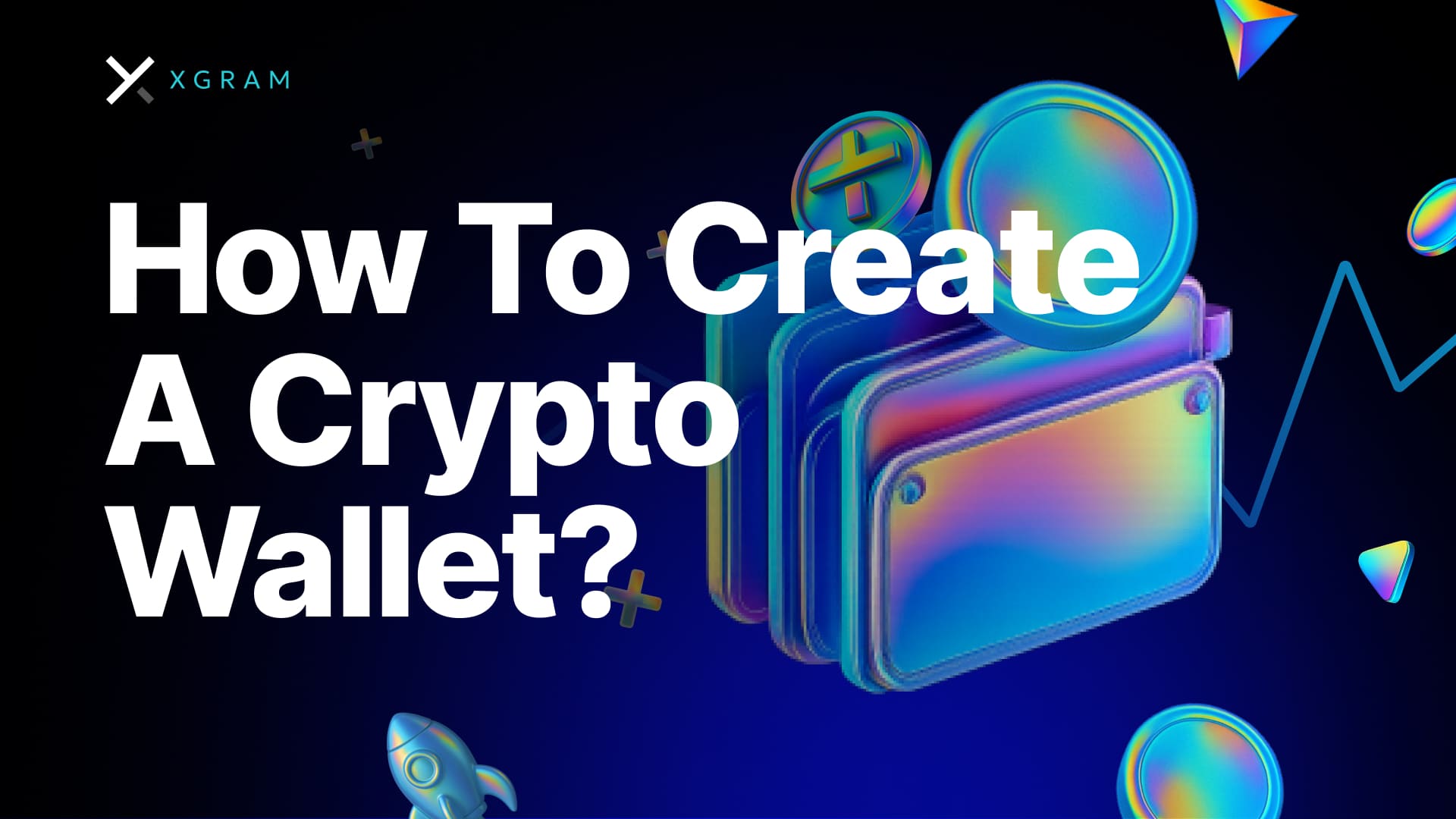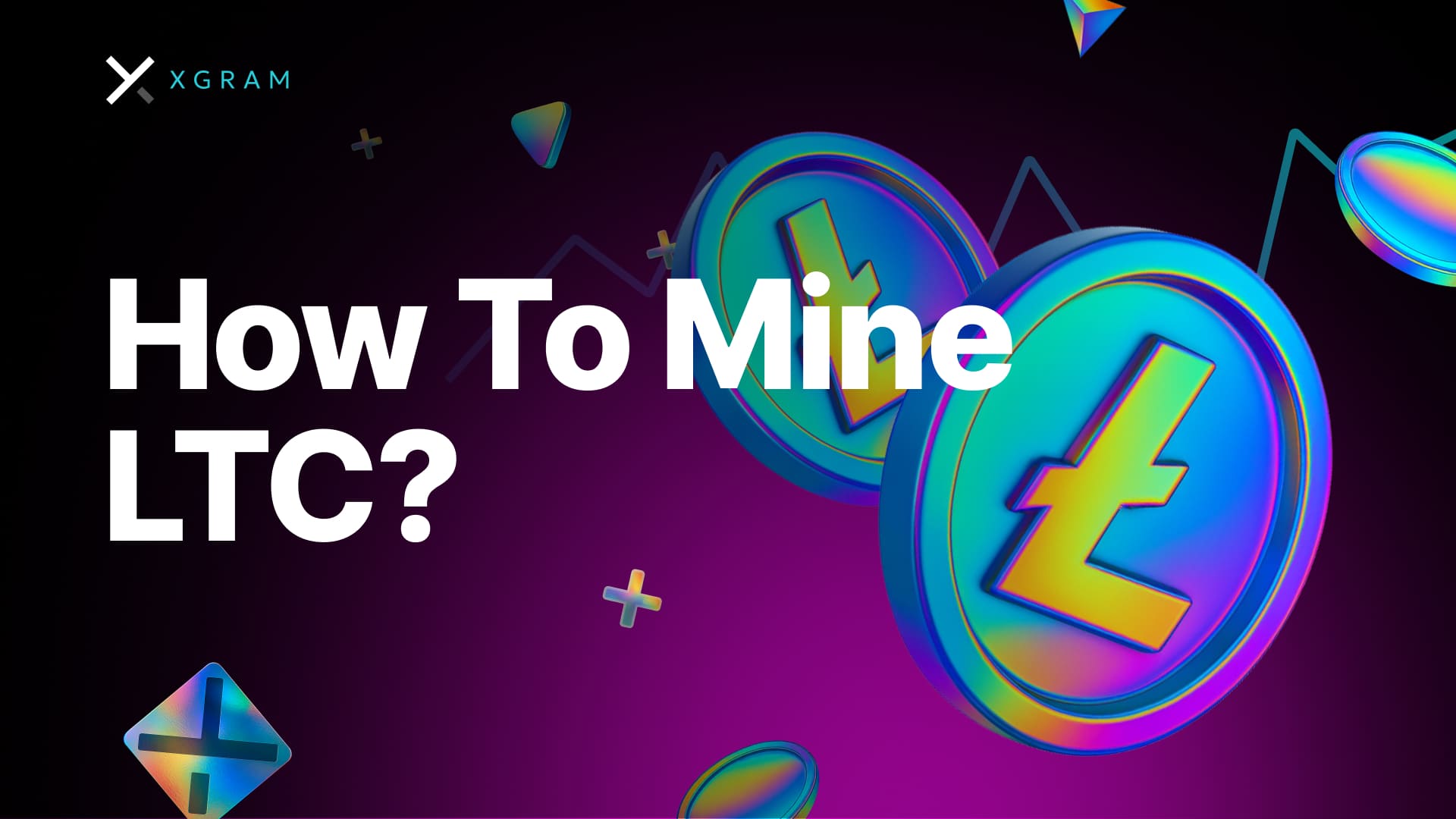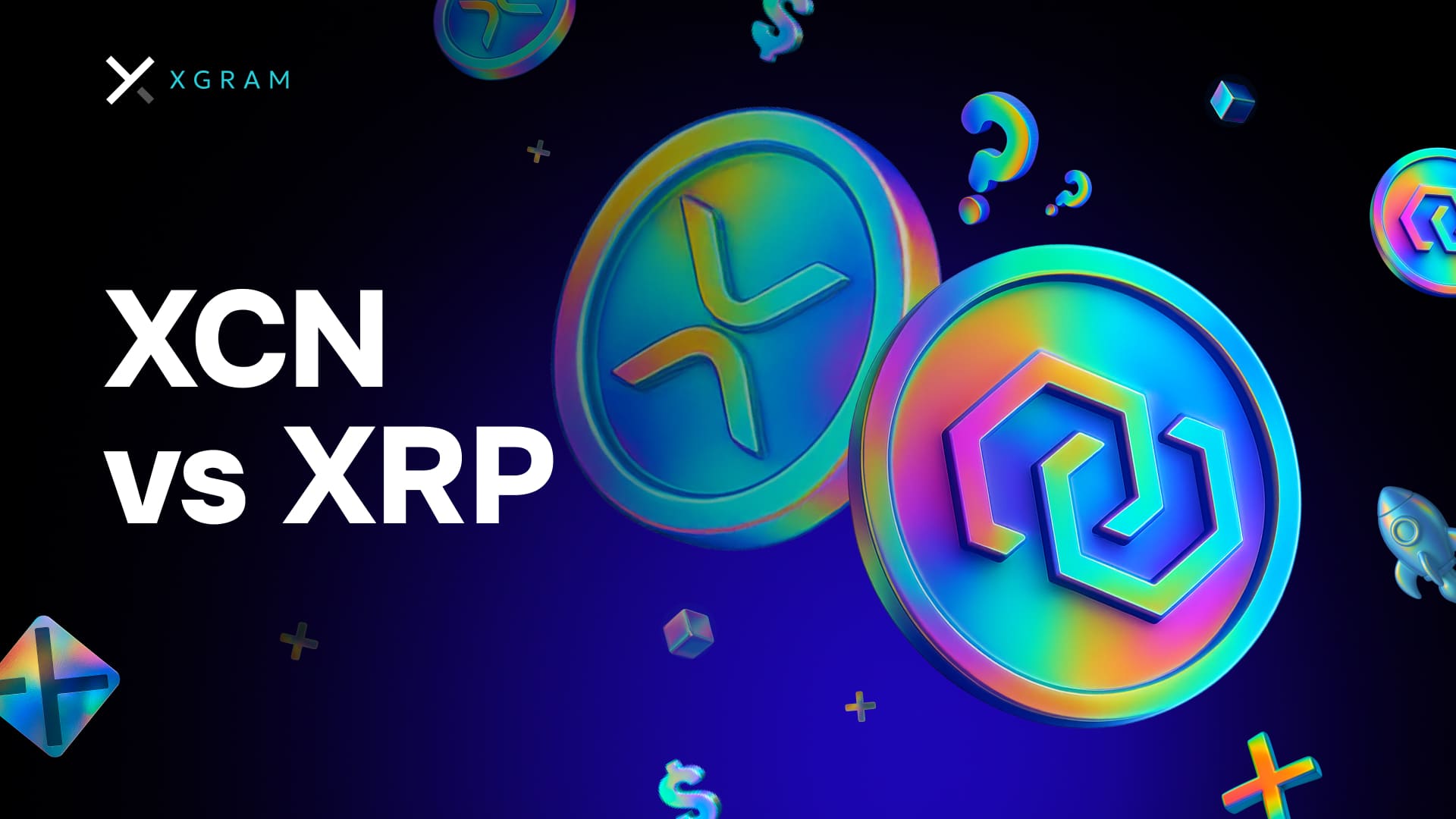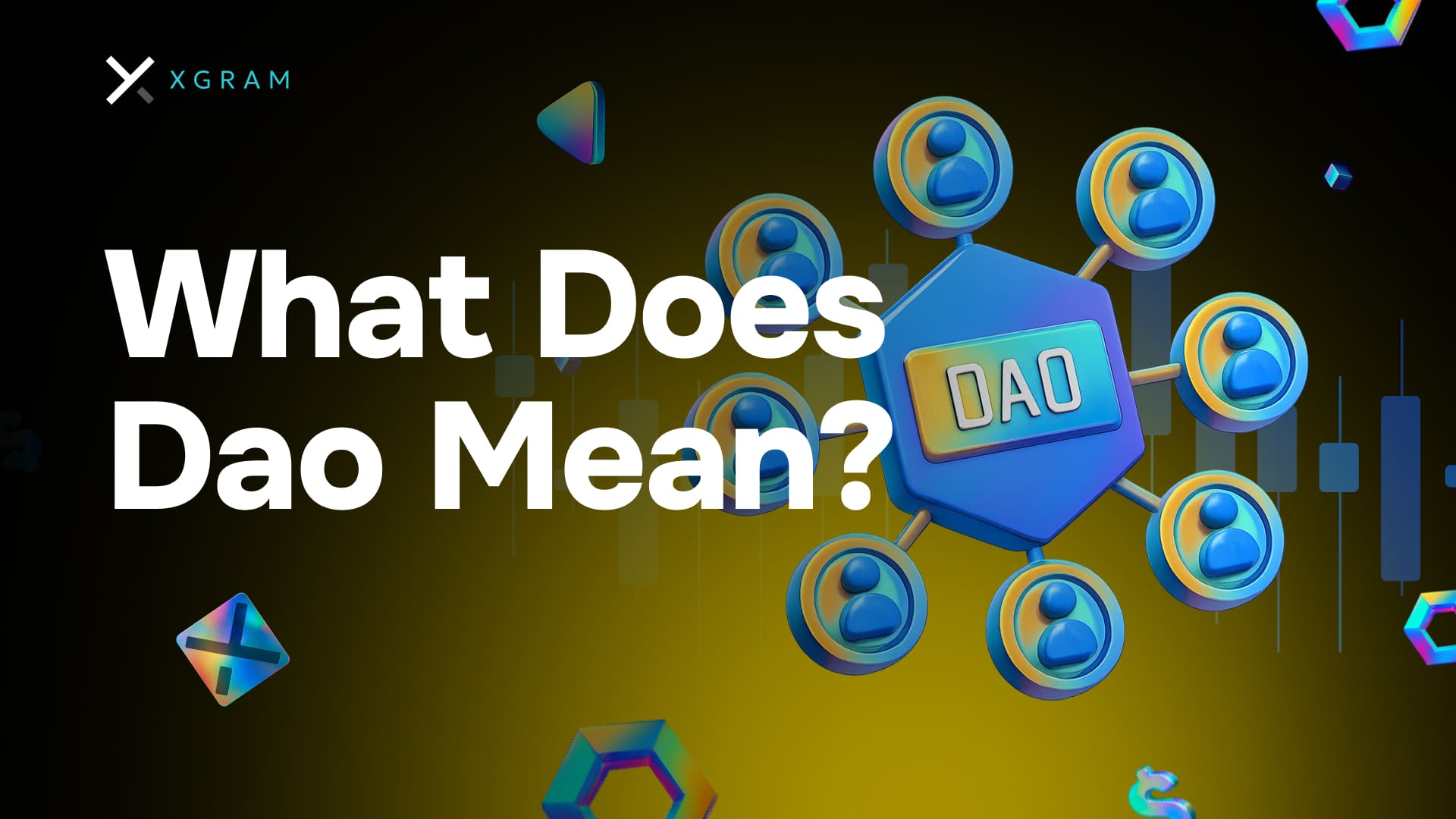
Tl;dr
Se você só tem um minuto, aqui vai um resumo rápido do que é um DAO. Primeiro, um DAO (Organização Autônoma Descentralizada) é um grupo liderado pela comunidade que usa smart contracts para definir participação, votação e distribuição de recursos. Segundo, DAOs priorizam governança descentralizada, então não existe uma única pessoa no controle. Terceiro, muitas vezes você precisa de um token ou NFT específico para votar em propostas, o que facilita a participação de qualquer pessoa. E por fim, DAOs buscam transparência, oferecendo acesso aberto a propostas, orçamentos e atividades na blockchain.
Entendendo o básico
Definição de DAO
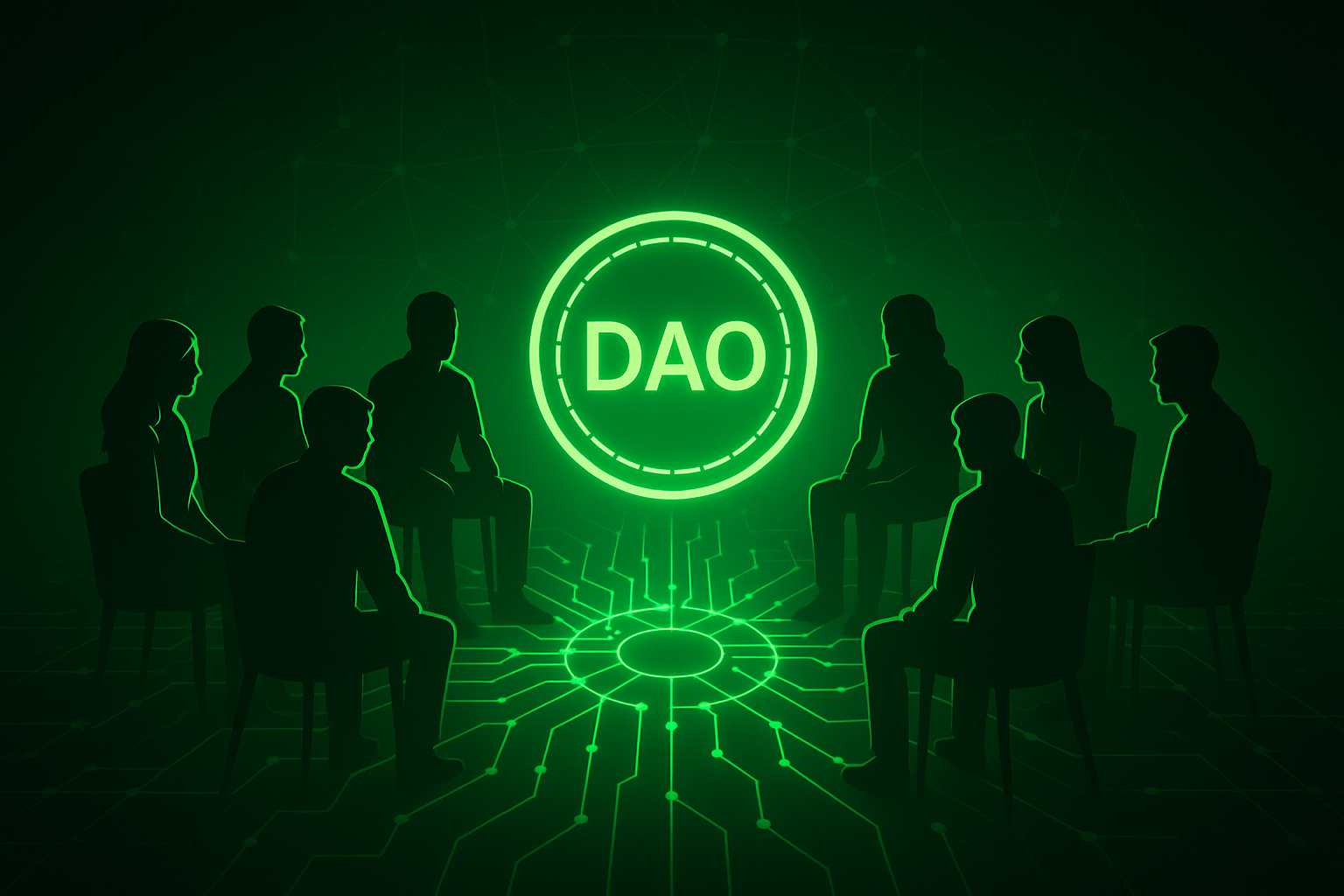
DAO significa Organização Autônoma Descentralizada. Você pode encarar como uma organização gerida por regras escritas em smart contracts, em vez de por um conselho de diretores. Isso significa que cada decisão importante dentro do DAO, como financiar um novo projeto ou mudar a forma como recompensas são distribuídas, é tomada por quem possui tokens de governança. Como todas as transações e votos acontecem em uma blockchain pública, tudo é transparente e verificável.
Diferente das empresas tradicionais, os DAOs normalmente não dependem de uma hierarquia em que um CEO ou presidente tenha mais poder. Em vez disso, cada membro com direito a voto pode influenciar as decisões do grupo. Essa descentralização é o principal motivo pelo qual os DAOs são vistos como algo revolucionário no mundo cripto. Quando você pergunta “o que significa DAO?”, a explicação mais simples é que é uma organização liderada pela comunidade, baseada em automação e consenso.
Origens na blockchain
O conceito de DAO ganhou forma à medida que a tecnologia blockchain amadureceu. Os primeiros entusiastas imaginaram um futuro em que a confiança seria estabelecida por código, reduzindo a necessidade de instituições centralizadas. Com o Bitcoin abrindo caminho para transações descentralizadas, desenvolvedores perceberam que podiam aplicar o mesmo princípio à governança. Os smart contracts do Ethereum permitiram construir sistemas mais complexos sobre a blockchain, preparando o terreno para o surgimento dos DAOs.
O primeiro experimento de DAO de grande destaque, conhecido simplesmente como “The DAO”, foi lançado em 2016 na rede Ethereum. Apesar de ter enfrentado problemas de segurança, ele provou que uma organização descentralizada controlada por smart contracts era possível. Com o tempo, o conceito evoluiu para padrões de segurança mais rigorosos, melhores plataformas de votação e modelos de governança mais robustos. Hoje, há DAOs em diferentes blockchains, incluindo Ethereum, Binance Smart Chain e outras, todas construindo em cima da ideia de coordenar e colaborar sem uma estrutura corporativa tradicional.
Principais características dos DAOs
Governança descentralizada
A governança de um DAO é o seu coração. Você não precisa “se candidatar a um emprego” tradicional em um DAO. Em vez disso, ao ter o token ou NFT do projeto, você passa a fazer parte do processo de tomada de decisão. Membros apresentam propostas, e a comunidade vota para aprová-las ou rejeitá-las. Essa estrutura pode parecer mais democrática do que modelos hierárquicos em que um grupo pequeno decide tudo.
A governança descentralizada oferece mais transparência. Em vez de procurar documentos escondidos ou atas de reuniões perdidas em pastas privadas, você pode ver os detalhes de cada proposta na blockchain. Essa abordagem aberta reforça a responsabilidade—todos veem como as decisões são tomadas, o que mantém os participantes focados nos interesses do projeto.
Participação baseada em tokens

A maioria dos DAOs emite um token nativo para representar participação ou poder de voto. Pense nisso como sua chave digital para a “sala do conselho”. Quanto mais tokens você tiver, maior é a sua influência. Isso às vezes é chamado de sistema “baseado em stake”, em que o peso do seu voto depende do tamanho da sua posição. Outros DAOs distribuem um único voto por membro, independentemente da quantidade de tokens, buscando uma representação mais igualitária.
Como os tokens são negociáveis, entrar em um DAO é relativamente simples: basta comprar o token em um exchange ou ganhá-lo contribuindo com o projeto. Esse modelo pode te dar participação direta no crescimento da organização. Se o tesouro do DAO cresce ou novos projetos geram receita, os detentores de tokens costumam se beneficiar. Ao mesmo tempo, essa estrutura aberta pode causar mudanças rápidas na governança se uma grande quantidade de tokens mudar de mãos.
Smart contracts como espinha dorsal
Por trás de todo DAO existe um conjunto de smart contracts—código autoexecutável—que guarda todas as regras e condições de participação. Quando uma proposta atinge o número de votos necessário, o smart contract pode executar automaticamente as mudanças aprovadas. Isso pode incluir transferir fundos para uma equipe de desenvolvimento, atualizar a alocação do tesouro ou modificar parâmetros da plataforma.
Como os smart contracts geralmente são open source, você pode auditá-los se tiver conhecimento técnico. Isso ajuda a garantir que ninguém consiga desviar fundos ou mudar regras em segredo. Em teoria, o código funciona como árbitro final, garantindo que todos sigam as diretrizes aprovadas pela comunidade.
Por que os DAOs importam para novos usuários de cripto
Fortalecendo projetos guiados pela comunidade
Se você está começando em cripto, pode se interessar pela ideia de influenciar o destino de um projeto em vez de apenas investir passivamente. DAOs permitem que você proponha ideias, solicite financiamento e decida coletivamente os próximos passos. Ao distribuir poder entre todos os participantes, DAOs alimentam a inovação de baixo para cima. Em vez de esperar que uma entidade central entregue atualizações ou defina prioridades, você mesmo pode sugerir melhorias—e, se a comunidade concordar, elas são financiadas.
Essa sensação de pertencimento pode ser bem motivadora. Como novo usuário, você percebe que a linha entre “usuário” e “construtor” fica borrada quando entra em um DAO. Você não fica só assistindo: vota, propõe e ajuda a moldar o produto ou serviço que a comunidade quer construir. Essa abertura é algo que organizações tradicionais raramente oferecem, principalmente para recém-chegados.
Benefícios e incentivos compartilhados
Em uma empresa tradicional, lucros geralmente vão primeiro para acionistas ou executivos. Em um DAO, a comunidade inteira pode ganhar quando o projeto vai bem. Muitos DAOs compartilham receita ou distribuem tokens aos participantes por realizar tarefas, dar feedback ou divulgar o projeto nas redes sociais. Isso cria um senso de responsabilidade coletiva—os incentivos de todos apontam para o sucesso comum.
Para iniciantes, isso pode ser especialmente interessante. Ao possuir tokens do DAO, você tem uma participação direta no futuro do projeto. Se o DAO investir em iniciativas promissoras, os ganhos podem ser reinvestidos ou distribuídos entre os membros. Esse modelo colaborativo costuma gerar comunidades online bem ativas, cheias de devs, usuários e entusiastas que querem ver o projeto crescer. Você não é apenas um espectador; vira parte de um ecossistema vivo.
Riscos e desafios
Vulnerabilidades de segurança
Apesar do potencial, os DAOs não são à prova de falhas. Alguns dos primeiros DAOs sofreram com bugs em seus smart contracts, o que permitiu ataques e roubos de fundos. Embora os padrões de código e as auditorias tenham melhorado, você ainda deve pesquisar bem antes de se envolver. Procure projetos com smart contracts bem revisados, equipes de desenvolvimento confiáveis e auditorias ativas da comunidade.
Entender os riscos é fundamental porque DAOs costumam administrar grandes tesouros. Se você está votando em uma proposta para alocar fundos, quer ter certeza de que não está entregando capital a um golpe. Ao buscar um DAO mais seguro para entrar, leia a documentação, verifique auditorias de terceiros e veja se a comunidade discute segurança de forma aberta.
Incertezas regulatórias
A regulamentação é outro ponto sensível. Empresas tradicionais são amplamente reconhecidas em estruturas legais pelo mundo, mas DAOs operam na fronteira da tecnologia descentralizada. Diferentes jurisdições podem ter regras distintas sobre tributação, captação de recursos ou responsabilidade legal dos participantes.
Para novos usuários, essa falta de clareza pode ser desconfortável. Mesmo assim, muitos DAOs tentam navegar esse cenário contratando assessoria jurídica ou criando entidades legais associadas (como o modelo de “wrapped DAO”, ligado a uma LLC). Vale a pena acompanhar as discussões legais dentro da comunidade do DAO e se manter informado sobre as leis locais.
Navegando a participação em um DAO
Como entrar ou criar um DAO
Entrar em um DAO geralmente envolve obter seus tokens. Você pode comprá-los em exchanges, em mercados descentralizados ou ganhá-los contribuindo diretamente. Depois disso, conecte sua carteira à plataforma do DAO—como um portal de votação ou painel comunitário—para começar a participar. Também é importante acompanhar o fórum, o Discord, o Telegram ou outros canais oficiais do DAO, onde são anunciadas novas propostas e votações.
Se você quiser criar seu próprio DAO, existem plataformas que oferecem soluções “DAO-in-a-box”. Elas geram os smart contracts básicos, a configuração de tokens e os mecanismos de governança. Ainda assim, você será responsável por definir regras específicas, escrever um whitepaper ou manifesto e montar uma comunidade que se importe com o projeto. A vantagem é que você não precisa programar tudo do zero, mas é essencial entender bem os fundamentos da governança descentralizada.
Ferramentas para engajamento
Os DAOs modernos dependem de um ecossistema de ferramentas digitais para funcionar. Apps de mensagem e fóruns servem para discussões do dia a dia, enquanto ferramentas de votação, como plataformas baseadas em snapshot, permitem que detentores de tokens votem com ou sem pagar taxas on-chain. Alguns DAOs usam dashboards especializados que mostram, em tempo real, o estado do tesouro e das propostas de grants, para manter todos informados.
Ferramentas de gestão de projetos ajudam a organizar tarefas e acompanhar o progresso, garantindo responsabilidade. Além disso, muitos DAOs utilizam carteiras multifirma, que exigem a aprovação de várias pessoas para mover fundos. Isso equilibra segurança e eficiência. Como novo membro, vale a pena se familiarizar com essas ferramentas, porque elas são parte central de como o DAO se comunica, planeja e executa decisões.
Exemplos no mundo real
DAOs de destaque para acompanhar
Há DAOs voltados para vários nichos, de finanças descentralizadas (DeFi) a arte digital. Embora seja impossível listar todos, algumas categorias mostram bem o impacto desse modelo:
- Protocolos DeFi: plataformas como MakerDAO usam estruturas de DAO para governar parâmetros do protocolo, taxas de juros e estratégias de investimento.
- Coletivos de investimento: esses DAOs reúnem fundos para apoiar startups cripto ou projetos de NFT, distribuindo participação entre os detentores de tokens.
- Coletivos de criadores: artistas, músicos e criadores de conteúdo formam DAOs para possuir e monetizar suas obras em conjunto, simplificando gestão de royalties e direitos.
- Comunidades sociais: alguns DAOs promovem redes sociais descentralizadas ou redes de apoio peer-to-peer, com foco em devolver o controle aos usuários.
Ao acompanhar esses DAOs nas redes sociais ou entrando em seus servidores de Discord, você pode observar como eles gerem propostas, distribuem recompensas e se relacionam com a comunidade. Isso ajuda a aprender métodos práticos de governança que podem ser adaptados para seus próprios projetos.
Explorando o xgram para exchanges cross-chain
À medida que você se aprofunda em cripto, pode precisar trocar tokens entre diferentes blockchains. É aí que entra o xgram. Primeiro, o xgram é uma plataforma simples de usar que permite realizar transações cross-chain e swaps comuns sem precisar ficar pulando entre várias ferramentas. Segundo, você não precisa conectar uma carteira para começar a usar o xgram, o que deixa tudo mais acessível para iniciantes. Terceiro, ao agregar rotas cross-chain em uma única interface, o xgram ajuda a encontrar os melhores caminhos para mover ativos entre redes. Quarto, a plataforma também busca reduzir taxas ao escanear múltiplas fontes de liquidez, ajudando você a economizar em custos de transação. E, por fim, a abordagem simplificada e sem conexão de carteira do xgram garante que você consiga entrar rapidamente no universo cross-chain sem se perder em processos de bridge complicados.
Perguntas frequentes
Um DAO é igual a uma empresa comum?
Não exatamente. Embora ambos possam tocar projetos e gerenciar orçamentos, um DAO foca na tomada de decisões descentralizada, em que cada membro com poder de voto contribui. Em uma empresa tradicional, há uma hierarquia e diretores que tomam as decisões finais. Um DAO usa smart contracts para automatizar e fazer cumprir regras, sem um ponto único de controle.Preciso de habilidades técnicas para entrar em um DAO?
Não necessariamente. Alguns DAOs se concentram em código e desenvolvimento, mas muitos procuram gente com habilidades em marketing, design ou gestão de comunidade. O importante é encontrar um DAO cuja missão faça sentido para você. Você pode aprender a parte técnica com o tempo ou focar em contribuições não técnicas, como criação de conteúdo ou organização de eventos.O que staking tem a ver com DAOs?
Em muitos DAOs, fazer staking de tokens pode te dar direitos de voto ou recompensas extras. Ao bloquear seus tokens, você demonstra compromisso de longo prazo com o projeto. Isso também pode ajudar a reforçar a segurança da rede ou fornecer liquidez em contextos DeFi. Em troca, você pode ganhar tokens adicionais, uma parte das taxas ou simplesmente ter mais peso nas votações.Um DAO pode fracassar?
Sim, DAOs podem falhar como qualquer outro empreendimento. Má governança, falta de financiamento, falhas de segurança ou baixa participação da comunidade podem fazer um DAO desandar. Por isso, é essencial analisar a estrutura do DAO, quem são os contribuidores ativos e qual é o plano de longo prazo. Um DAO bem-sucedido costuma ter regras claras, liderança consistente (ainda que descentralizada) e engajamento forte dos membros.Como encontro um DAO que combine comigo?
Comece pelas áreas de cripto que mais te interessam—DeFi, NFTs, jogos ou causas sociais. Depois, procure em plataformas como Discord, Telegram ou X para ver quais DAOs existem nesse nicho. Você também pode navegar por plataformas especializadas que listam projetos de DAO. Leia a missão, veja se a comunidade é ativa e participe de algumas calls abertas para entender se o DAO está alinhado com seus valores.
Conclusão
Entrar no universo das criptomoedas pode ser confuso, principalmente quando cada artigo traz um acrônimo novo. Entender o que é um DAO é uma peça-chave para compreender como funcionam as comunidades descentralizadas. Você não é só visitante nesses ecossistemas—tem poder para propor, votar e influenciar o rumo de projetos inteiros. Ao contrário das organizações tradicionais, DAOs dependem da participação ativa dos membros, registrada de forma transparente na blockchain, para continuar dinâmicos e inovadores.
Agora que você já conhece o básico sobre DAOs—como funcionam, por que são importantes para novos usuários de cripto e quais riscos considerar—pode tomar decisões mais informadas sobre entrar em um. Comece devagar, acompanhando comunidades ou participando de uma votação. Com o tempo, você ganha experiência prática para navegar a governança de DAOs com confiança. Ao escolher um DAO que combine com seus interesses, você pode acabar contribuindo para a próxima grande onda de tecnologia descentralizada. E se precisar trocar tokens enquanto explora redes de diferentes projetos, lembre que ferramentas como o xgram podem simplificar exchanges cross-chain e ajudar a reduzir taxas. Abrace o espírito democrático dos DAOs—você tem assento na primeira fila do futuro da colaboração descentralizada, e a sua voz pode fazer diferença nessa evolução.



